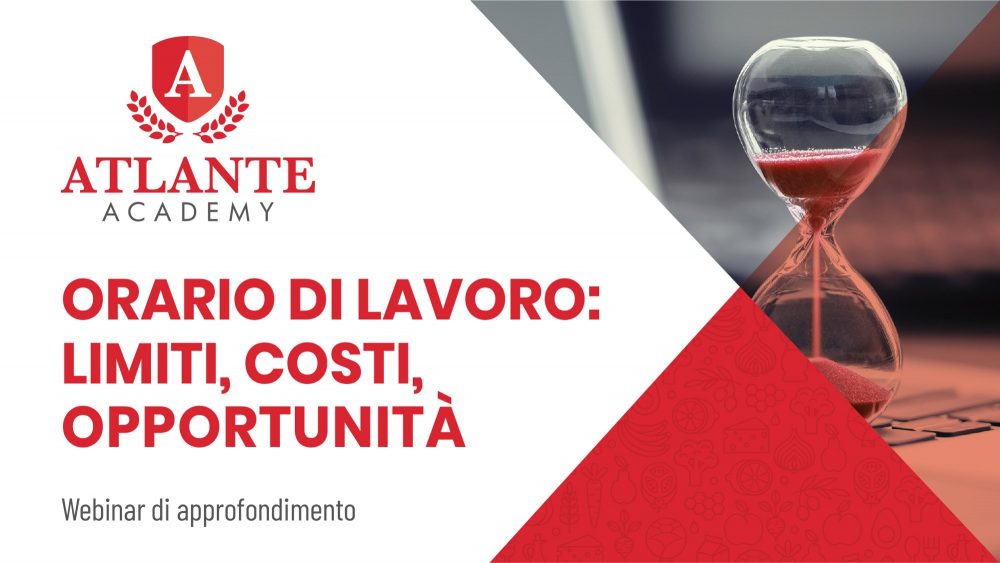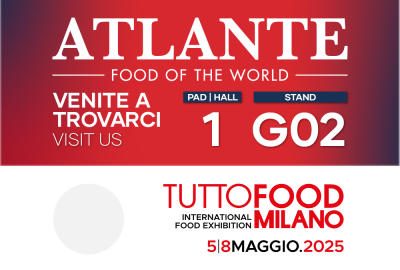Atlante
News
Atlante Academy’s outreach work continues with a webinar dedicated to working hours

22 June 2021
Last month, Atlante and their Atlante Academy presented a webinar called “Working ours: limits, costs, opportunities”. The webinar was designed as an in-depth look at the issues surrounding working time regulations and aimed at HR managers, production managers of the places that produce JS and Migros brands, and RSA/RSU and RLS representatives.
The webinar was organized as part of Atlante’s 2021 ethical action plan for the promotion of good work in its supply chains and is now available on the Atlante YouTube channel.
At the start, Gian Stefano Cecca, Ethical Manager at Atlante, recapped the requirements of the relevant international standards, such as the SMETA standards (SedexMembers Ethical Trade Audit) that the suppliers of the Sainsbury’s brand follow. This first section of the webinar also mentioned the main violations commonly issued during SMETA audits at production sites in Italy and elsewhere.
Both on a weekly or annual basis, there are still many reports of overruns of the maximum number of overtime hours allowed by national legislation and industry contracts, with a consequent increase in the risk of work-related accidents or the development of work-stress related illnesses. Those who are most affected by this phenomenon aren’t just low-skilled workers as is often the case in proven cases of exploitation, but key figures in the smooth running of production processes, such as maintenance workers and highly specialised workers.
After Gian Stefano Cecca’s introduction, the webinar continued with a presentation by Dr. Gianluca Petricca, specialised in workplace consultancy and founding partner of NEXUMStp Group, a multidisciplinary consultancy with its headquarters in Rome. Dr. Petricca went over in detail what the national legal references are on working time, including those instruments that the legislator has made available to companies to manage such key figures (or ‘keymen’) in a flexible manner, with alternating peaks of work and periods of rest and recuperation (multi-period working hours, time bank), as well as the forms of tax-free welfare that companies can give to similar categories of workers (such as keymen) to increase the spending capacity of the worker who would suddenly lack the ‘outlawed’ overtime.
Dr. Petricca’s invaluable presentation, a real course on the subject, finished with the risks associated with the abuse of overtime, with a focus on new smart working. A small gift from Atlante to its suppliers, given the relevance of the tool in times of pandemic.
Atlante will organize more events in upcoming months regarding social responsibility for businesses, above all in periods of great changes and uncertainty such as current times.
“The problem is not to lose sight of the man who, before being a consumer, is an employee. He’s in a working environment that is respectful of employees and their free time that develops a sense of belonging in the company and the spontaneous affective adherence of the employee to a project shared with his employer. The search for the right compromise between the achievement of company objectives and the necessary rest time, both in fact and in the value conveyed by the employer, puts the employee in a position to consider the workplace as a place where he can feel accomplished and not only as a place necessary for his material sustenance”, said Ethical Manager Gianstefano Cecca, commenting on the latest reasons behind the idea of a webinar on working time.





